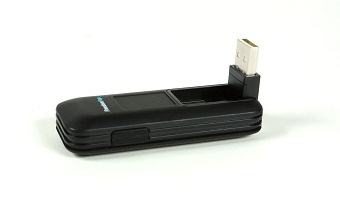FreedomPop To Target Cable With Wireless Broadband
The smarter way to stay on top of the multichannel video marketplace. Sign up below.
You are now subscribed
Your newsletter sign-up was successful

Startup FreedomPop, which this week launched a nationwide wireless broadband service with a “freemium” model, is planning to introduce a service tier that it will market against cable and telco wireline operators.
“We haven’t marketed [against wireline] but no question that is a focus,” FreedomPop chief operating officer Steve Sesar said in an interview. “We absolutely think we are competitive with at-home, and we will be introducing an at-home offering in the next couple of months.”
On Monday, FreedomPop kicked off an open beta test of its service, which offers downloads of up to 10 Megabits per second and up to 500 Megabytes of data usage per month -- for free. The wireless Internet service runs over Clearwire’s WiMax network, available in 72 markets covering 130 million U.S. residents, and is scheduled to expand on Sprint Nextel’s 4G LTE network in 2013.
FreedomPop is like a “Dropbox for broadband,” Sesar said, referring to the online service that offers up to 2 Gigabytes of data storage for free with premium plans beyond that.
Members can earn up to 1 Gigabyte of data per month usage by adding friends to their network and earn unlimited data usage each month by engaging in partner promotions (such as filling out a survey, watching a video or signing up for a marketing offer). The company also is offering prepaid data plans, which Sesar said are 20% to 40% below the rates of major carriers.
Initially, FreedomPop is aiming to provide a cheaper alternative to 4G services from AT&T and Verizon Wireless. “We are trying to reinvigorate real mobile competition, to provide better value for consumers when they’re getting absolutely pillaged by the carriers,” Sesar said.
But eventually FreedomPop plans to make its pitch to cable and wireline telco Internet customers. “We will have focus on that category,” Sesar said. He declined to provide details on FreedomPop’s package aimed at wireline-broadband users.
The smarter way to stay on top of the multichannel video marketplace. Sign up below.
Currently, FreedomPop customers must use one of two devices: the $89 Freedom Spot Photon, a Wi-Fi hub that can power up to eight devices; or the $49 Freedom Stick Bolt (pictured above), a USB WiMax modem. Sesar declined to identify which manufacturers are supplying the devices to FreedomPop. The device charges are security deposits, which are fully refundable, Sesar said; customers pay only for shipping.
Los Angeles-based FreedomPop has around 50 employees. The company has raised $7.5 million from Mangrove Capital, DCM and Skype founder Niklas Zennstom's Atomico. It raised an undisclosed amount of debt funding to acquire the devices for launch.
“Relative to a telco… we have a very different cost structure,” Sesar said.
The company expects to sign up “tens of thousands” of users for the beta period. Already, FreedomPop is running out of the hotspot unit, Sesar said: “That’s a bit of a surprise.”
FreedomPop’s primary customer-acquisition channel is through its users, who earn 10 MB of additional free data usage per month for every friend who signs up and uses the service. “The beauty of our model is our acquisition costs get pushed down the zero,” Sesar said.
Users also can exchange capacity allowances with their friends, Sesar said. “We have share plans that go well beyond the share plans of traditional carriers,” he said.
In addition to revenue from marketing partners in the “Earn Free” program and prepaid data plans, FreedomPop plans to generate revenue by selling users value-added services. Today it provides three fee-based options: a “concierge” service for premium technical support; customizable usage alerts; and a “turbo boost” option that is supposed to guarantee the fastest speeds available in your area.
The company expects to introduce additional premium services in the future that are designed to “offer an enhanced experience,” Sesar said. To date, FreedomPop has internally tested 114 such services, he added.
